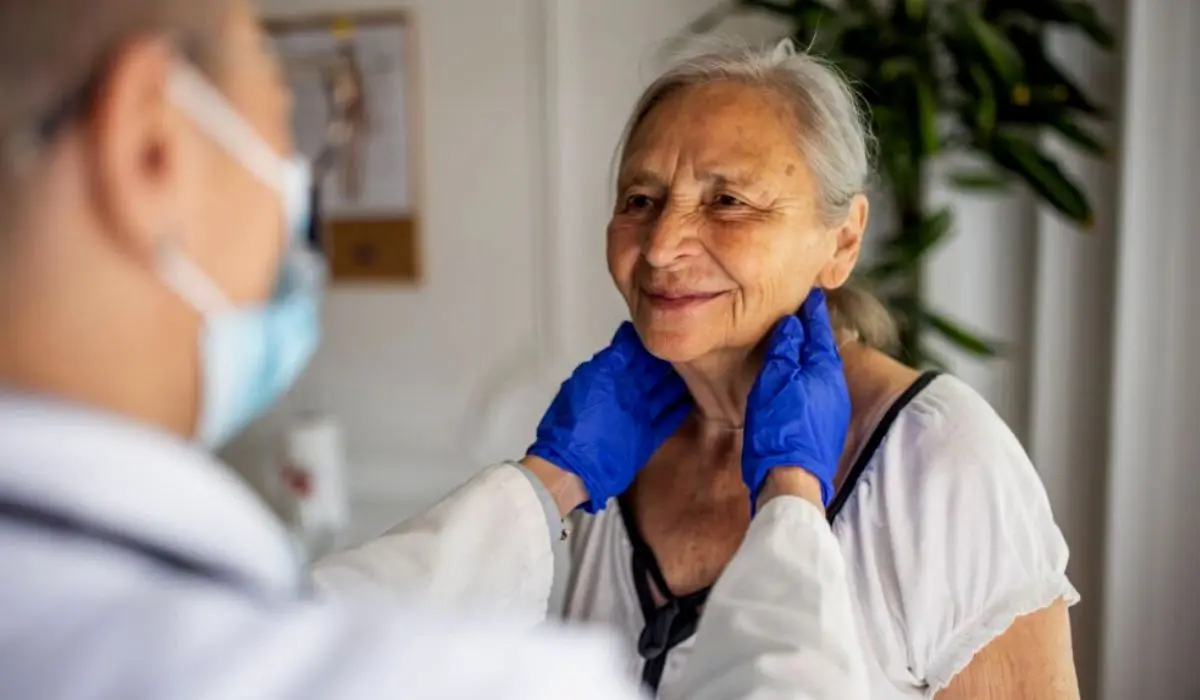The lymph node is an important part of the cardiovascular system. It is small like a bean and is found throughout the body. It works to filter out harmful substances and cells, preventing them from spreading. This process is essential for staying healthy and safe.
Inside the lymph node, white blood cells called lymphocytes exist. They identify and fight off threats. As the lymph fluid passes through, the lymphocytes interact with any antigens in the fluid. If the antigen is a threat, the lymphocytes activate an immune response.
Additionally, lymph nodes help different parts of the immune system communicate. The flowing lymph fluid enables antigens and immune cells to interact. This coordination makes sure that any dangers are quickly spotted and addressed.
What Are Lymph Nodes?
Lymph nodes are small, bean-shaped organs that have a big job. Strategically placed in our bodies, they filter lymph fluid and capture dangerous things like bacteria, viruses, and cancer cells. These little structures are the unsung heroes of our body’s defense.
It’s like they’re checkpoints along the highway of our circulatory system. The fluid travels through and lymphocytes inspect it. If they find anything bad, they trigger an immune response to take care of it.
The architecture of lymph nodes helps with filtering and keeping watch. Each one is divided into compartments with cells to do specific tasks. Macrophages, B-lymphocytes, and T-lymphocytes are all in there.
Function Of Lymph Nodes In The Cardiovascular System
Lymph nodes help the cardiovascular system. They are small, bean-shaped organs. They filter lymph fluid to remove bad things and make immune cells. As well, they balance fluids by returning them to our bloodstream.
The function of lymph nodes is linked to their role in the immune system. Lymph fluid carries waste, bacteria, and foreign substances.

It moves through a network of lymphatic vessels and finally reaches the lymph nodes. Inside, lymphocytes detect and destroy bad stuff before it reaches organs like the heart.
Additionally, lymph nodes aid the body in fluid balance. Lymphatic vessels near blood vessels collect interstitial fluid. This fluid contains nutrients and waste that need to go back to the bloodstream.
The lymphatic vessels carry the fluid to bigger vessels. These then drain into veins near the heart. This prevents swelling. So, to keep the cardiovascular system healthy, take care of your lymph nodes.
Exercise promotes better circulation and stimulates lymph flow.
Staying hydrated helps filtration and transport. Foods with antioxidants reduce inflammation in the lymphatic system. These include berries, greens, nuts, and fatty fish.
Also, avoid toxins and pollutants. Practice good hygiene to reduce the risk of infections. These simple steps promote a healthy immune system and cardiovascular system.
Association Between Lymph Nodes And Cardiovascular Diseases
The association between lymph nodes and cardiovascular diseases is an area of increasing interest for the medical community.
Lymph nodes are fundamental in the body’s immune system and help to filter toxins and waste from the blood. This helps to fight infections and also promotes cardiovascular health.
Studies suggest that certain cardiovascular diseases, such as atherosclerosis and heart failure may affect lymph node function.
Atherosclerosis can cause plaque to build up in the arteries, resulting in inflammation of nearby lymph nodes. This inflammation may further damage blood vessels and worsen cardiovascular disease.
Research has also highlighted the role of lymph nodes in controlling blood pressure. The lymphatic system eliminates extra fluid from tissues, including those around blood vessels.
A disruption in this process may lead to fluid retention and an increase in blood pressure. Thus, it’s essential to maintain healthy lymph node functioning for proper cardiovascular regulation.
Treatment Options For Lymph Node-Related Cardiovascular Problems
Treating lymph node-related cardiovascular problems? A range of options exist! Surgical removal of affected nodes is often suggested.
It requires making incisions to carefully excise the nodes. This may be done on its own, or with radiation therapy or chemotherapy.
Radiation therapy uses high-energy beams to target and destroy cancerous cells. It shrinks enlarged nodes and relieves cardiovascular symptoms. Alone or in combination with surgery, it can help those not suitable for an operation.
Drug therapies target cancer cells, inhibiting their growth and spread. They can be taken orally or intravenously.
Alternative therapies like acupuncture, herbal medicine, and mind-body techniques have been explored too. But more research is needed to prove their efficacy.
Read More:- What Is The Role Of Macrophages In Immunity? Types & Functions
Conclusion
The lymph node has a complex association with the cardiovascular system. It links vital functions within the body. This connection is key for immune response and circulatory health.
The lymph node acts as a hub for the lymphatic system. It filters fluid, eliminates toxins, and manages immune responses. It also works with the cardiovascular system. It helps to maintain homeostasis by controlling fluid balance and aiding cardiac function.
Recent research shows the lymph node is involved in regulating blood pressure and vascular tone. It interacts with T cells, a special type of immune cell. This shows how our body systems are linked. It gives us new ways to understand and treat cardiovascular illnesses.
The history of the lymph node’s connection to the cardiovascular system is interesting. In ancient times, doctors knew swollen lymph nodes were signs of systemic disease. Over time, they worked out the anatomy and realized its importance for well-being.

